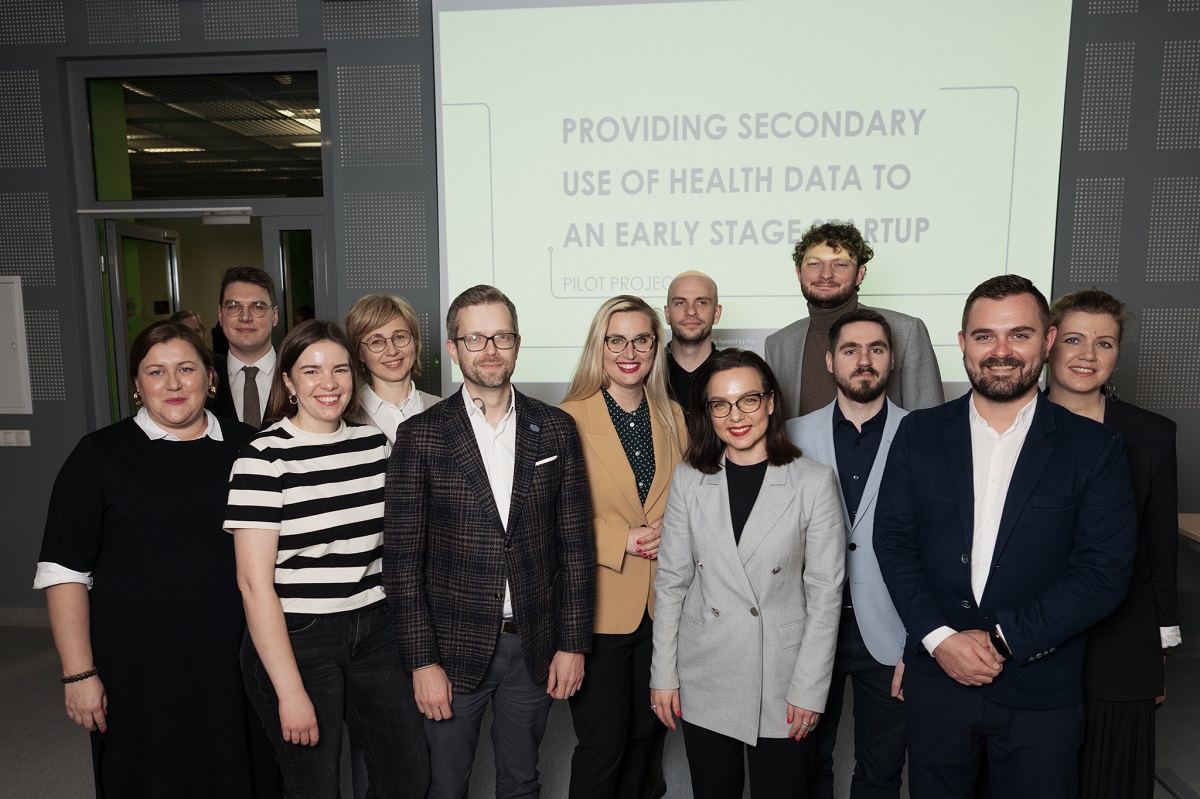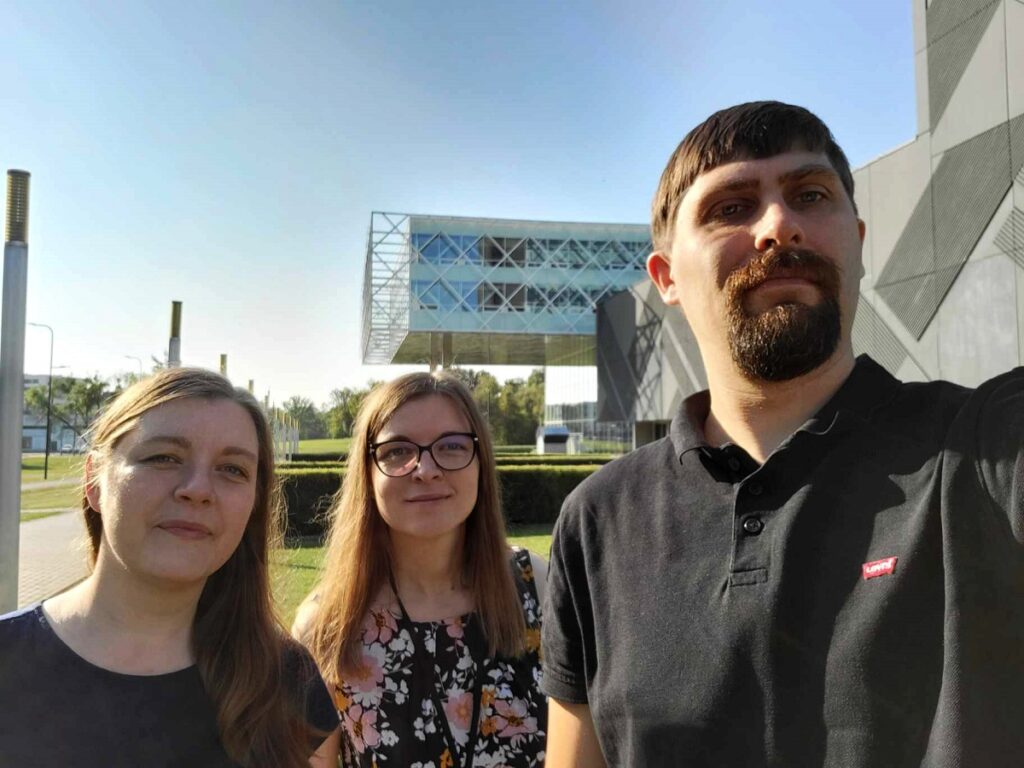Lithuanian Health Data Pilot for Startups aims to enhance Cancer Treatment Effectiveness

A first of a kind pilot project, centred on the secondary use of health data for startups, selected to support a solution for more effective cancer treatment effectiveness. The winner is BrachyDose, a company developing advanced dosimetry systems to enhance quality assurance and monitoring in brachytherapy, one of the most prevalent cancer treatments.

“The lack of reliable health data limits the commercialization of R&D and innovation. Secondary health data will help train one of our algorithms to better ensure the effectiveness of therapeutic procedures. This data will also allow us to better understand the costs associated with cancer patients in the Lithuanian health system and the extent of side effects from radiotherapy. This comprehensive data set is a reliable and comprehensive source, allowing us to develop solutions tailored to both patients and physicians and create strategies for expanding into countries such as Germany and France”, commented Neringa Šeperienė, founder of BrachyDose.
A Collaborative Effort
Launched in February, the pilot project attracted 10 startups. A panel of representatives from the project’s initiating organizations selected the winner. These organizations include EIT Health RIS Hub Lithuania, partly coordinated by the Lithuanian University of Health Sciences (LSMU), LSMU Hospital Kaunas Clinics, LSMU Kaunas Hospital, Vilnius University Santaros Clinics’ Biobank, the State Data Agency, the Innovation Agency, the law firm Ellex, and the venture capital fund Baltic Sandbox Ventures.
Inga Kanapeckienė, Coordinator of EIT Health RIS Hub Lithuania and Project Manager at the Health Innovation Development Centre at LSMU, shared her enthusiasm: “We are thrilled with the outcome of this project. Beyond supporting the winner, it has inspired other startups to leverage health data for innovation. We are already collaborating with two additional startups, which will soon submit applications to the State Data Agency. Additionally, we have received an application from a startup that would like to leverage biobank data to develop its innovative treatment solution. Given the uniqueness of their concept and specific data needs, our partners decided to continue collaborating with them. We believe that we will soon hear more success stories that will further drive data-driven innovation”.
“The Ministry of Health highly appreciates the EIT Health RIS Hub Lithuania pilot project on secondary health data for startups. We encourage and support initiatives that promote the effective reuse of health data, which is particularly important in the context of Lithuania’s digital health”, remarked Olegas Niakšu, Deputy Minister of Health.
Health Data: Key to Innovation Success
This project marks a shift from theoretical discussions to an actionable roadmap, and proactive reuse of health data for more innovation. Its goal is to empower life sciences startups to harness personalized health data to position Lithuania as a leader in research and innovation, closing gaps with other EU countries.
“This project aligns with the broader goals of the European Health Data Space, contributing to the creation of a secure, efficient health data ecosystem that fosters innovation and improves patient care across Europe”, added I. Kanapeckienė.
Lithuania’s open data market is on a rapid growth trajectory, reflecting the nation’s capacity for innovation, particularly in health technologies. By 2024, the open data market is expected to reach €566 million, representing approximately 1.2% of GDP and creating around 8,000 high-value-added jobs. By 2026, this market is projected to contribute 1.76% of GDP.
“Open data has the potential to drive growth across sectors, especially in health technologies. Lithuania’s position as a highly innovative country, combined with the availability of talented individuals and extensive health data, gives us a unique competitive edge. Health data is the raw material vital for developing innovations ranging from preventive technologies to operating support systems. As a small, highly innovative country with talented individuals, maximizing the use of health data can be our differentiator—not only as a leader in health innovation but also as a magnet for new business ventures”, noted Erika Kuročkina, Deputy Minister of Economy and Innovation.
Aiming to Establish a Long-Term Collaboration Mechanism
The ultimate aim is for this pilot project to evolve into a long-term initiative, helping startups integrate health data into their solutions more effectively, creating greater societal and socio-economic value.

“The mentality behind this project embodies the same methodologies we teach startups—quickly formulating and testing hypotheses. Our goal was to navigate the user journey of a startup requesting secondary health data, identify bottlenecks that prevent broader data activation, and then systematically address these obstacles. We are grateful to our project partners, who play a key role in enhancing Lithuania’s life sciences ecosystem”, said Dominykas Milašius, Investment Partner at Baltic Sandbox Ventures, and co-founder of Delta biosciences.
Echoing this sentiment, Jekaterina Kalinienė, Head of Biotech Lab at the Innovation Agency, emphasized: “Lithuania has significant potential to leverage health data in developing cutting-edge solutions and attracting foreign investment. However, this potential is like big data — it’s useless unless targeted effectively. That’s why I invite businesses to join pilots and initiatives, experiment, and test as much as possible, especially given the strong support from our state institutions”, urged Jekaterina Kalinienė, Head of Biotech Lab at the Innovation Agency.
Fostering Cross-Sector Partnerships
The success of this initiative was underpinned by strong cross-sectoral partnerships. “The project not only highlights the steps startups need to take to access data but also showcases the public sector’s role in identifying gaps and facilitating access. I believe this will encourage the public sector to be more flexible in providing health data, consolidating Lithuania’s position as a health innovation hub in Europe, and potentially positioning it as a health data hub in Europe”, added Deputy Minister Kuročkina
The availability and effective use of health data are key factors that can transform Lithuania’s health innovation ecosystem, making the country more competitive globally. It is crucial to ensure that health data is used responsibly, adhering to legal and ethical standards, while encouraging businesses to seize this unique opportunity.
Dr. Julius Juodakis, Head of the Health Data Team at the State Data Agency, added: “The secure access to health data for businesses is still under development in many countries, but Lithuania has been actively providing it for the past two years. We are pleased that the State Data Agency is open to renowned universities, the private sector, and startups alike. When we receive an application, our team helps clients understand the legal nuances, refine their data requirements, and securely prepare the data while always safeguarding patient privacy. This pilot project with BrachyDose is a complex but highly successful case, so we consulted with specialists from the State Patient Fund as well. We look forward to further expanding these services to further boost transparency, speed, and convenience, based on all our learnings”.
The reuse of health data presents a transformative opportunity for Lithuania’s health innovation ecosystem. By integrating these data-driven solutions, startups and businesses can drive meaningful advancements in healthcare while adhering to the highest ethical standards.
“We are very grateful to our partners who not only supported the project’s idea but also actively participated throughout the process. Each partner made invaluable contributions to this successful outcome. Our joint efforts will not only further this project but also open up new opportunities for using health data to drive innovation”, I. Kanapeckienė concluded.
